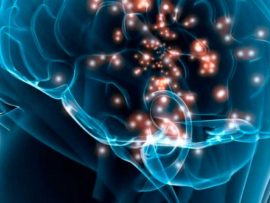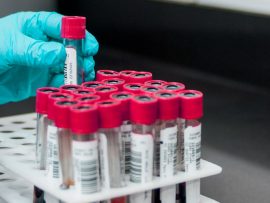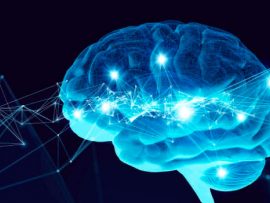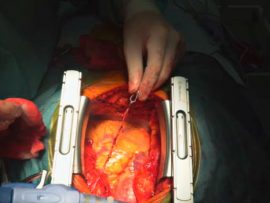Abstract Objective One of the most significant complications following coronary artery bypass grafting (CABG) is postoperative cognitive decline (POCD). CABG patients frequently experience considerable postoperative cognitive dysfunction (POCD), including decline..
Read MoreAbstract The association of frailty with postoperative delirium has not been fully investigated in patients undergoing cardiovascular surgery. Therefore, this study aimed to investigate whether preoperative hand grip strength is..
Read MoreAbstract Background Postoperative cognitive dysfunction is common after cardiac surgery. Postoperative measurements of brain injury biomarkers may identify brain damage and predict cognitive dysfunction. We describe the release patterns of..
Read MoreAbstract Objectives To assess the ability of the biomarkers neuron-specific enolase (NSE), tau, neurofilament light chain (NFL), and glial fibrillary acidic protein (GFAP) to predict postoperative cognitive dysfunction (POCD) at..
Read MoreAbstract Objective This study aimed to explore the influence of coronary artery bypass grafting (CABG) on both postoperative cognitive dysfunction and quality of life (QoL) and the association between the two..
Read MoreAbstract Background Neuropsychiatric complications of surgical are inconspicuous but frequent and clinically relevant. So far, attempts to reduce their occurrence, such as the introduction of off-pump coronary artery bypass (OPCAB) grafting..
Read MoreAbstract Background Debilitating brain injury occurs in 1.6–5 % of patients undergoing cardiac surgery with cardiopulmonary bypass. Diffusion-weighted magnetic resonance imaging studies have reported stroke-like lesions in up to 51 % of..
Read MoreAbstract Purpose Postoperative cognitive dysfunction (POCD) occurs frequently after cardiac surgery. The pathophysiology of POCD remains elusive, but previous work showed that intravenous lidocaine may be protective against POCD, possibly..
Read MoreAbstract Objective Silent brain lesions are known to occur after coronary artery bypass grafting (CABG). The aim of this study was to seek the incidence rate, the influence of procedures,..
Read MoreAbstract Background Brain injury and cognitive dysfunction are serious complications after cardiac surgery. In the perfusion pressure cerebral infarcts (PPCI) trial, we allocated cardiac surgery patients to a mean arterial..
Read MoreAbstract Objective This study was performed to investigate the correlation among decreased regional cerebral oxygen saturation (rSO2), blood levels of brain injury biomarkers, and postoperative cognitive disorder (POCD) after cardiac..
Read More






